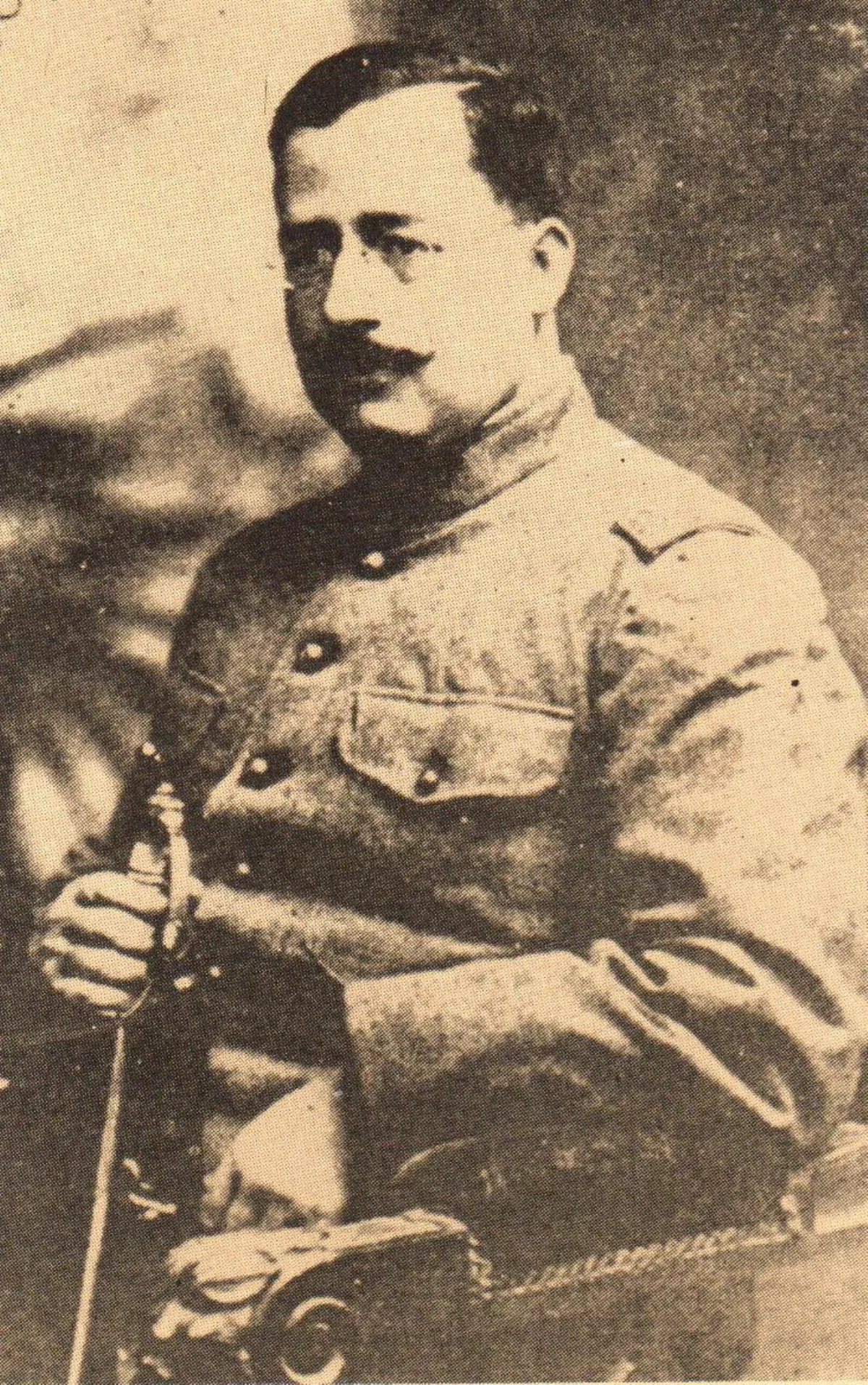 1.
1. Salvador Alvarado Rubio was a general and politician during the Mexican Revolution.

 1.
1. Salvador Alvarado Rubio was a general and politician during the Mexican Revolution.
Salvador Alvarado served in the Constitutional Army under President Venustiano Carranza.
Salvador Alvarado was born on September 16,1880, in Culiacan, in the Mexican state of Sinaloa to Timoteo Alvarado and Antonia Rubio.
Salvador Alvarado's family moved to a Yaqui pueblo, known as Potam, in Sonora when Alvarado was around eight years old.
Salvador Alvarado later moved to Cananea, where he opened his own pharmacy and worked for several years as a pharmacist and merchant.
In 1910 Alvarado joined the Anti-Reelectionist Party in Sonora, which had been established by, Benjamin G Hill.
In 1911, when Francisco I Madero who had been exiled into Texas, wrote the Plan de San Luis Potosi calling for the election to be declared null and void, and for Diaz to be overthrown, Alvarado recrossed the border into Mexico.
Salvador Alvarado joined the revolutionary army as a captain, fighting Porfirio Diaz, under the command of Juan G Carvajal.
Salvador Alvarado fought alongside Huerta against Orozco and was promoted to the Chief of the Federal Auxiliary.
Salvador Alvarado did not recognize the presidency of Huerta and immediately joined the constitutionalist revolution led by Carranza, who promoted him to Brigadier General, Commander of the Parade Ground of Mexico City, and Commander of the Army of the Southeast.
Salvador Alvarado made his way to join Carranza in the center of Mexico and was ordered to proceed to Puebla to organize the Constitutionalist troops of Puebla and Tlaxcala.
Salvador Alvarado's forces had little difficulty in putting down the rebel movement and by 19 March 1915, Alvarado had arrived in the capital of Merida.
Salvador Alvarado took six months after arriving in Merida to evaluate the conditions he found, gathering data from all social levels assisted by local Yucatecos.
Salvador Alvarado staffed his bureaucracy with a mix of "conservative planters and radical intellectuals" and forged a coalition to restructure society.
Salvador Alvarado canceled their indenture debts with the landowners and established laws for women and child laborers, including domestic workers, defining maximum hours, minimum pay, mandatory rest periods, health and safety standards, and prohibitions on immoral employment.
Salvador Alvarado's vision was to change the almost feudal Hacienda system into a capitalist system converting the peones into true proletarian workers who were paid wages and in turn would increase production for the Henequin plantation owners.
Salvador Alvarado established "Tribunals of the Revolution" in each of the 16 partidos of the state to ensure that courts were accessible to everyone.
Salvador Alvarado put an end to "Cohecho Investigations," a misuse of the Sedition Law known as Circular Number One, which haciendados were using against workers to punish them for actions or words that might cause other workers to question working conditions.
Salvador Alvarado claimed that he had passed over 1,000 decrees during his three-year tenure as governor.
Salvador Alvarado established the agente de propaganda, a proto-ombudsman position, who was responsible for reporting abuses against common people by the landed class and merchants or violations of law.
Salvador Alvarado passed laws making education mandatory, secular and free and required that it focus on literacy, reading, writing, arithmetic and civic responsibility.
Salvador Alvarado established agricultural, fine arts, arts and crafts schools and founded the Escuela Libre de Derecho, a free academic institution for teaching law.
Salvador Alvarado passed laws both recognizing and legalizing unionization and established an umbrella organization Casa del Obrero Mundial to encourage union workers toward active political participation.
Salvador Alvarado did not pass laws criminalizing prostitution, but instead required regular health inspections for prostitutes.
Salvador Alvarado passed legislation to establish old age pensions and a law which created an office of Public Works.
Salvador Alvarado called on teachers to hold the First Congress on Educational Campaigns in the State.
Salvador Alvarado drove the First Feminist Congress in Mexico, which was held in Merida, Yucatan in 1916.
When Salvador Alvarado was recalled for military duty in other parts of Mexico in 1918, he appointed Carlos Castro Morales to succeed him and Felipe Carrillo Puerto as head of the Partido Socialista de Yucatan, the Yucatecan Socialist Party.
Zapata's 1919 assassination, the resignation of Alvaro Obregon as Minister of War, and the failure to recognize Salvador Alvarado's maxim "give them land, and you bind them to Mexico," increasingly alienated Carranza's former allies.
Salvador Alvarado founded a newspaper in 1919, El Heraldo de Mexico, which he used as a platform to discuss intellectual ideals.
Salvador Alvarado was released in January, 1920 and exiled to the United States.
De la Huerta had inherited an almost bankrupt government, and Salvador Alvarado made numerous trips to New York City to secure funds through both loans and publicity of Yucatecan henequin.
In 1921 de la Huerta handed over power from his interim government to Alvaro Obregon and Salvador Alvarado left the Treasury and began working as the Director of Free Ports and Secretary of the Advisory Board of Petroleum.
In 1922, Salvador Alvarado was in Yucatan and US newspapers were reporting that he was meeting with leaders who were in opposition to Obregon and his chosen successor, Plutarco Elias Calles.